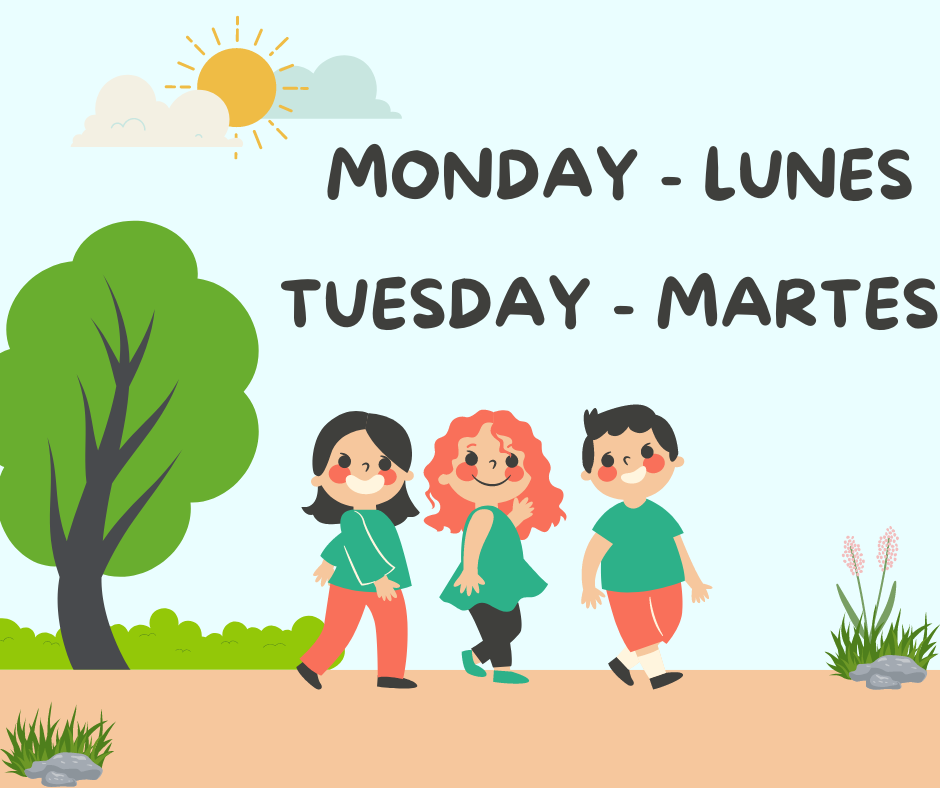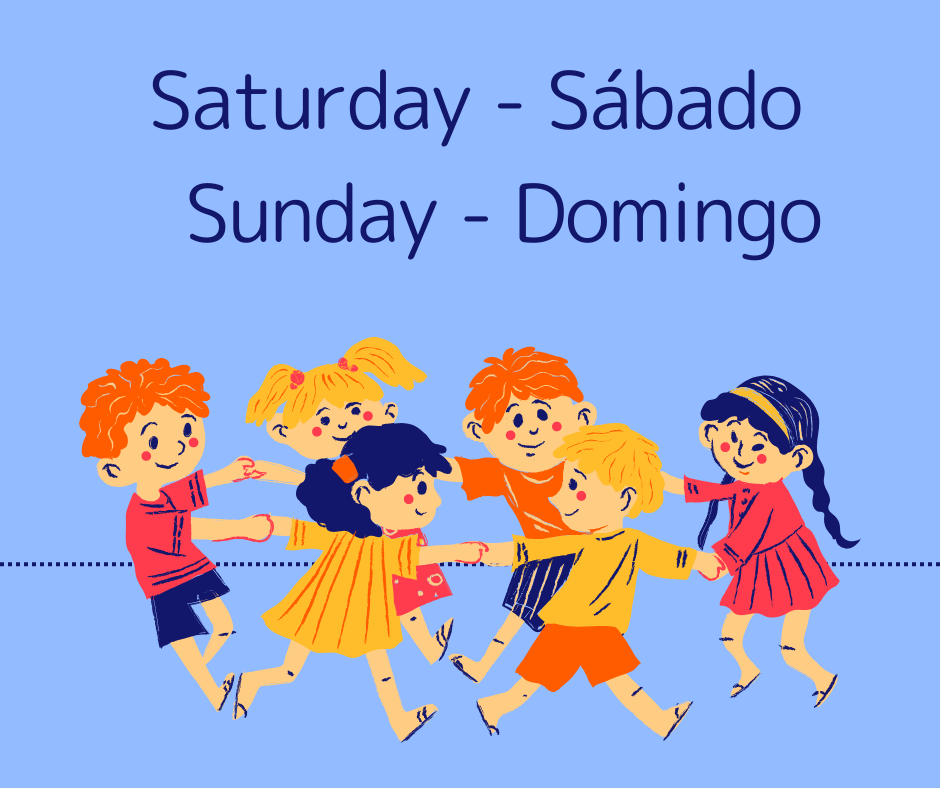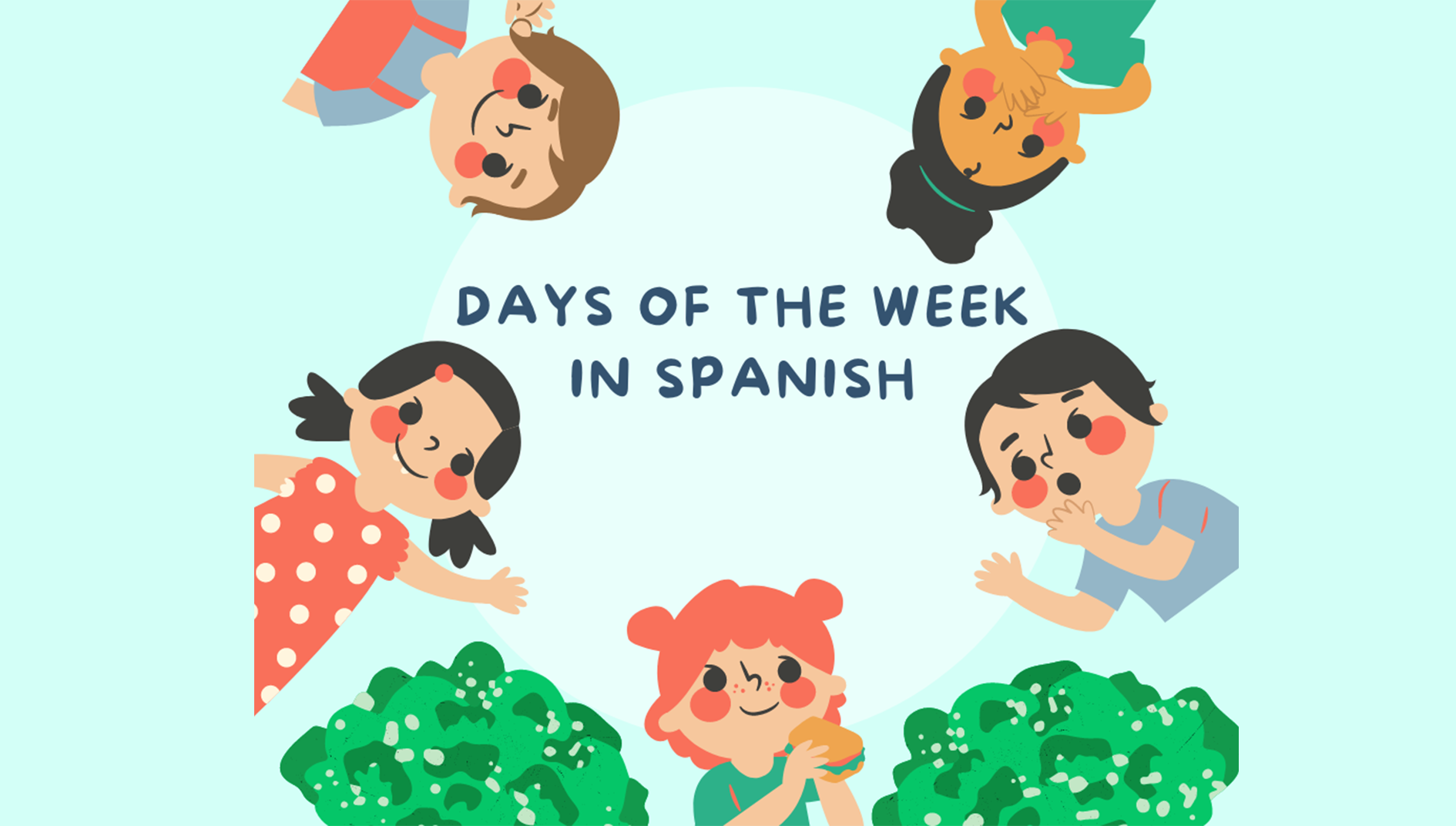Do you want to plan a spontaneous weekend getaway to Mexico, or are you trying to recall an important meeting amid a busy day? Perhaps you’re organizing a surprise party and need to know the exact day it falls on. In these everyday situations and many more, knowing the days of the week in Spanish isn’t just a skill; it’s a practical necessity that can make your life easier.
This journey takes you beyond the familiar – a mission to conquer the days of the week in Spanish! Whether you’re a seasoned traveler, a beginner in the language, or simply curious about expanding your Spanish language abilities, this article will equip you with the tools to master these fundamental building blocks of the Spanish language. You will discover engaging strategies to transform learning the days of the week into a fun and enriching experience.
How to Master Spanish Days of the Week with Ease?
Today, we explore a dramatic rhythm of pronunciation of the days of the week in Spanish. It takes us on a linguistic adventure! Here, you’ll discover that Spanish, unlike its English counterpart, is more keen on phonetic harmony. So, there is no need for guesswork – in Spanish, words are your companions, echoing their pronunciation in their written form. So, let’s begin exploring days of the week in Spanish, where every word is a melody!
Days of the Week in Spanish with Pronunciation:
Here are the Days of the Week in Spanish:
- Lunes (loo-nes): Monday
- Martes (mar-tes): Tuesday
- Miércoles (mee-air-coh-les): Wednesday
- Jueves (hweh-veh-s): Thursday
- Viernes (vee-air-nes): Friday
- Sábado (sah-bah-doh): Saturday
- Domingo (doh-meen-goh): Sunday
Each word has a rhythmic flow, and as you say it, you’ll soon find yourself effortlessly flowing through the days of the week in Spanish, making conversations so simple and easy to understand.
Exploring Days of the Week in Spanish, Step by Step!
Have you ever dreamt of dancing through a bustling market in Barcelona on a sunny Wednesday or indulging in churros and chocolate on a leisurely Sunday morning? Well, mastering the days of the week in Spanish is your first-class ticket to experiencing these experiences and much more!Get ready to ditch those boring flashcards—let’s go on a fun and interactive journey to conquer the days of the week.
Monday – Lunes
Mastering the days of the week is your key to unlocking a world of possibilities in Spanish!
Unlike English, Spanish is a phonetic language, so pronunciation closely follows how the word is written.
Pronunciation
Think “LOO-nes,” slightly emphasizing the “oo” sound.
- Lu: This part sounds similar to “loo” (rhymes with “shoe”).
- nes: The “nes” ending is pronounced like “ace” with a slight “s” sound at the very end.
Bonus Tip: Since “lunes” marks the beginning of the work week in most Spanish-speaking countries, you might hear people say Happy Monday! to colleagues or friends.
Tuesday – Martes
Now that we have understood how to say “lunes” (Monday) let us set our sights on martes (mar-TES), Spanish for Tuesday! Remember, Spanish is phonetic, so pronunciation follows the written word closely. Here’s how to say “martes” like a pro:
Pronunciation
Think “mar-TAYS”. The emphasis is on the second syllable, “TAYS”.
- Mar: Pronounced like “mar” in English (think “Mars, the planet”).
- tes: This ending sounds similar to “tays” with a very slight “s” sound at the very end.
Bonus Tip: Knowing “martes” can come in handy when planning your Spanish adventure. Many museums offer special discounts or extended hours on Tuesdays.

Wednesday – Miércoles
Next, we learn to say miércoles (myer-CO-les), the Spanish word for Wednesday. While it might seem daunting at first glance, this word is easy:
Pronunciation
Think “myer-CO-les.” The emphasis is on the second syllable, ” O”.
- Mié: This part can be tricky, but it’s pronounced like “myer” with a slight emphasis on the “e” sound.
- rco: The “rco” together sounds like “CO” with a very light “r” sound before it. Imagine a swift flick of your tongue before saying “CO.”
- les: This ending is similar to “les” in English (think “bells”).
Bonus Tip: Feeling peckish on a Wednesday? Many Spanish-speaking countries offer special lunch menus perfect for a budget-friendly bite!
Thursday – Jueves
Let us now move on to jueves (who-AY-vays), the Spanish word for Thursday!
Unlike English, Spanish pronunciation is entirely phonetic, so the spelling offers clues to the sound.
Here’s how to say “jueves” like a champ:
Pronunciation
This little trick emphasizes the correct pronunciation – who-AY-vays (emphasizing the “AY”).
- Ju: Pronounced like “who” in English.
- eves: This part sounds slightly like “vays” with a very slight “s” sound at the end.
Bonus Tip: Thursdays can be great for exploring local markets in Spanish-speaking countries. Many vendors offer special deals or extended hours on “jueves.”

Friday – Viernes
It’s almost the weekend! But before you head out to Spanish-speaking countries, let’s understand how to say viernes (vee-AIR-nes), “Friday”.
Remember, Spanish is phonetic, so pronunciation closely follows the written word.
Here’s how to say “viernes” like a local:
Think “vee-AIR”. This phrase emphasizes the correct pronunciation – vee-AIR-nes (emphasizing the “AIR”).
- Vier: Pronounced like “vee-air” with the “ee” sound similar to “feet” in English.
- nes: This ending is identical to “nes” in English (think “dens”).
Bonus Tip: Fridays are often associated with celebrations and socializing. Knowing how to say “viernes” can come in handy when planning your weekend fun in Spanish-speaking countries!
Saturday – Sábado
The workweek is over, and it’s time to celebrate! But before you dive into your weekend adventures, let’s learn to say sábado (sah-BAH-doh), the vibrant Spanish word for Saturday.
Since Spanish pronunciation is phonetic, the written word offers clues to the sound.
Here’s how to say “sábado” with confidence:
The correct pronunciation is sah-BAH-doh (emphasizing the “BAH”).
- Sá: Pronounced like “sah” with a clear “ah” sound.
- ba: Pronounced like “ba” in English (think “bat”).
- do: Pronounced like “do” in English (think “dog”).
Bonus Tip: Knowing “sábado” can be your key to unlocking weekend fun in Spanish-speaking countries! Many restaurants and bars offer special events or discounts on Saturdays.
Sunday – Domingo
As the week draws closer, let’s understand how to pronounce domingo (doh-MING-go), the Spanish word for Sunday.
Here’s how to say “Domingo” with ease:
Think, “Do some fun things this DOH-MING-go!” This playful phrase emphasizes the correct pronunciation – doh-MING-go (emphasizing the “MING”).
- Do: Pronounced like “do” in English (think “dog”).
- min: Pronounced like “min” with a clear emphasis on the “i” sound. Think of “minion” without the “ion” ending.
- go: Pronounced like “go” in English (think “go”).
Bonus Tip: Sundays are a great day to relax and explore the cultural side of Spanish-speaking countries. Many museums offer free admission or special events on “domingos.”

Days of the Week in Spanish – Fun Facts
- Derived from the Latin “Lunae dies” meaning “day of the Moon,” Monday gets its name from our celestial neighbor.
- Martes” gets its name from “Martis dies,” meaning “Mars’s day” in Latin. This links it to the Roman god of war, Mars. It connects the day with bravery and battles.
- “Miércoles,” or Wednesday, is named after Mercury, the Roman god associated with commerce, travel, and messages. He’s like the Greek god Hermes.
- “Jueves,” or Thursday, has its roots in “Jove” or “Jovis,” alternative names for Jupiter, the Roman king of gods, equivalent to the Greek deity Zeus.
- Sábado,” which means Saturday in Spanish, stands out from the other days of the week. While most days have names derived from Roman origins, “sábado” comes from the Hebrew word “Shabbat” or “Sabbath.”
- “Domingo” means “of the Lord” in Spanish. It’s a day with Christian connections, often reserved for attending church services and religious activities.
Takeaway
In summary, understanding the days of the week in Spanish is fascinating! It is a journey that combines language, culture, and tradition. From “lunes” to “domingo,” each day carries its unique significance deeply rooted in history and folklore.
Exploring the origins of Spanish weekdays reveals connections to ancient mythology, where gods and celestial bodies influence our modern calendar. As you continue your Spanish language adventure, use the days of the week in Spanish as a foundation.
These new words will help you plan your days and decide about schedules. Remember, a little practice goes a long way. Try using the days of the week in Spanish throughout your day, and you will become a “Pro.”


 March 25, 2024
March 25, 2024  8 Min
8 Min  No Comment
No Comment 



